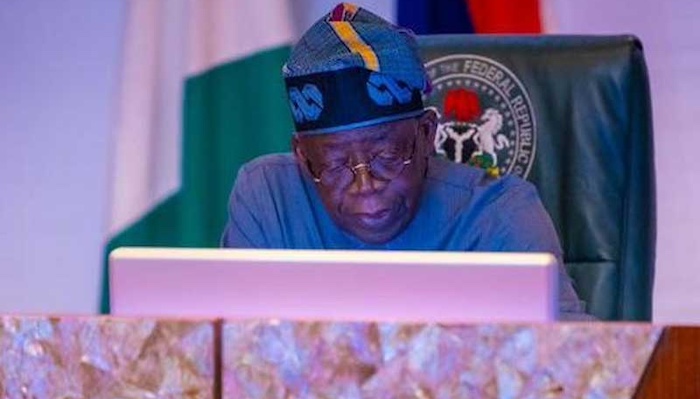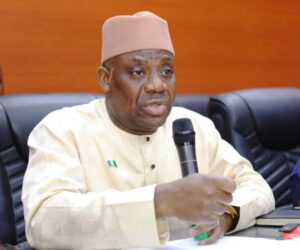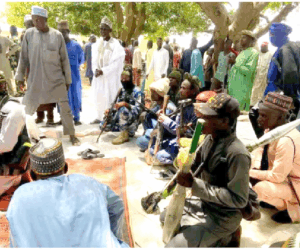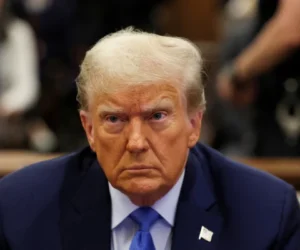The circumstances upon which President Bola Ahmed Tinubu granted pardon to some individuals remain shrouded. What is publicly known is that some weeks ago, the Council of State endorsed a proposal by the Attorney-General of the Federation (AGF) and Minister of Justice, Lateef Fagbemi, a Senior Advocate of Nigeria (SAN), covering 175 individuals under the Presidential Prerogative of Mercy.
Section 175 of the 1999 Constitution (as amended) empowers the president to grant a pardon, reprieve or commute a sentence for offences created by acts of the National Assembly. Section 212 gives the same power to state governors for offences under state laws.
The prerogative of mercy is a constitutional, discretionary power – an act of grace, not a right – courts generally cannot compel or overturn it except on grounds of procedural illegality.
SPONSOR AD
But then, the pardon has reopened wounds and raised hard questions about justice and accountability. Out of the 175 beneficiaries, 82 inmates were granted a full presidential pardon, 65 had their sentences reduced, while seven death sentences were commuted to life imprisonment.
A closer look revealed that of the total number, 70 of them committed drug related offences, constituting 40 per cent; illegal miners, 60 inmates or 34 per cent; financial/white collar crimes, 30 inmates or 17 per cent; and murder, 25 inmates or 14 per cent.
However, the decision immediately triggered nationwide outrage, with many Nigerians at home and in the diaspora expressing disbelief over the inclusion of individuals convicted of serious crimes. Senior citizens, human right advocates and opposition politicians described the process as “a mockery of justice” and “an embarrassment to Nigeria in the eyes of the international community.”
Even among the country’s security agencies, the pardon has provoked quiet anger. Some operatives who risked their lives tracking and arresting these criminals have reportedly felt “betrayed,” fearing that those once behind bars might return to seek revenge.
Among the names that ignited the fiercest debate is that of Maryam Sanda, convicted for the murder of her husband, Bilyaminu Bello, the nephew of a former Peoples Democratic Party (PDP) chairman, Dr Bello Halliru Mohammed.
Reacting to the development, Dr Mohammed, speaking for the family, described the development as “the worst possible injustice any family could be made to go through for a loved one.”
The family’s anguish reflects a broader public sentiment, that justice, once subverted, erodes trust, not only in government but in the moral authority of the state itself.
Equally troubling is the inclusion of a former military officer, Suleiman Alabi Akubo, a major in the Nigerian Army who was sentenced to life imprisonment for selling more than 7,000 stolen military weapons to Niger Delta militants.
Such a decision raises profound national security concerns. How could a person whose actions directly contributed to Nigeria’s unending insecurity be deemed worthy of mercy? The notion that an officer who allegedly traded in instruments of death could receive presidential clemency undermines the sacrifices of troops battling insurgency and banditry across the country.
As public condemnation mounted, AGF Fagbemi tried to douse the tension. He announced that the clemency process was still “undergoing a comprehensive verification” to ensure that all names and recommendations met the “established legal and procedural standards” before any official release order would be issued.
According to Fagbemi, the verification would involve multiple agencies, including the Economic and Financial Crimes Commission (EFCC), the National Drug Law Enforcement Agency (NDLEA) and the Nigeria Police Force. This clarification came amid allegations that some low-level officials in the advisory committee had “smuggled in” names not originally recommended for clemency.
At Daily Trust, we acknowledge that President Tinubu’s action may have been borne of good intentions—to promote reconciliation, decongest prisons and demonstrate compassion. However, the outcome has orchestrated serious controversy, exposing a deep disconnect between leadership decisions and public sensibilities. The decision, no matter how well-intentioned, has sent a wrong signal, that with the right connections, one can commit grave crimes and later be forgiven through political convenience.
By forgiving convicted murderers, drug traffickers and individuals who betrayed the country by arming terrorists, some of whom have shown little or no remorse, the government risks taking Nigeria several steps backward.
Unfortunately, Nigeria has become notorious for turning such exercises of mercy into sources of national division. The country witnessed a similar uproar under former President Muhammadu Buhari when some recently convicted former governors and political figures were pardoned, sparking widespread outrage and allegation of political favouritism. The lesson from that episode appears unlearnt.
While the prerogative of mercy exists in every democracy, it is applied sparingly and under strict moral and legal guidelines. In advanced jurisdictions, victims’ families are consulted; detailed justifications are made public; and offenders convicted of violent or terror-related crimes are rarely, if ever, included.
Nigeria must follow that standard. Clemency should not be a political instrument or secretive ritual. It should reflect justice tempered by mercy, not mercy at the expense of justice.
We, therefore, urge the authorities currently reviewing the list to proceed with the highest sense of responsibility, transparency and fear of God. Each case must be weighed against the harm inflicted on the society and the feeling of victims’ families. And once completed, the reviewed list should be made public to avoid suspicion, and restore confidence.
The president’s power of mercy is sacred, but mercy loses its moral force when it comforts the guilty more than it consoles the innocent.







